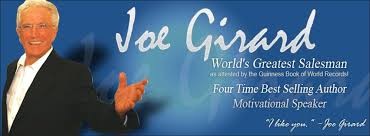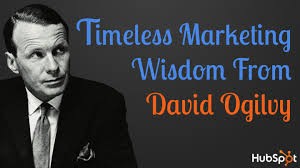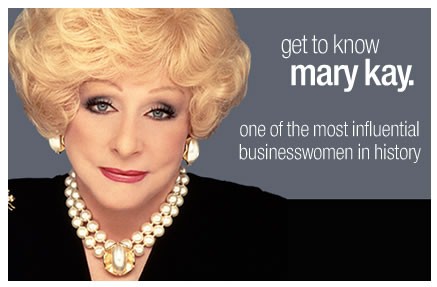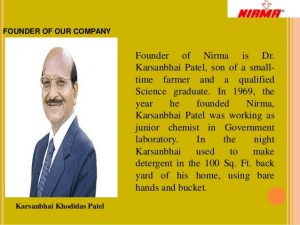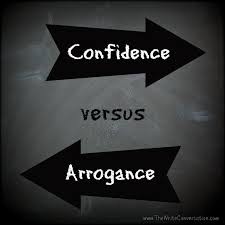Some Great Salesmen
The sales profession has undergone some radical changes. People have no patience, no time and no energy to listen to the salesman/saleswoman. The buyer thinks he knows it all because he/she gathers all information from the Internet. To top it all – technology is transforming the salesman’s job. Millions of salesmen have already lost their jobs because of the technological up gradation. Selling in today’s hectic and complex business world requires incredible effort and energy. It has become highly competitive and stressful.
But, there is a fact: even if internet and television are doing most of the selling, the rapidly advancing technology and machines cannot replace all of us. They lack in creativity needed in several jobs. Machines cannot replace architects, dancers, lyricists, actors, writers, painters, sculptures, authors, photographers – all of which are jobs that need creativity. Jobs like selling, nursing, teachers need empathy and compassion. Machines do not have the capability to “feel” hence selling in itself is an art.
I wish to mention here some of the renowned salesmen. I begin with Joseph Samuel Gerard, better known as Joe Girard, an American salesman. Girard sold whooping number of 13,001 cars at a Chevrolet dealership between 1963 and 1978; for his great selling, Girard has been recognized by the Guinness Book of World Records as the world’s greatest salesman!!! As one of America’s most sought-after salesmen and obviously a great speaker, Girard has spoken at engagements with General Motors, Hewlett-Packard and Kmart.
Girard taught that salesman has to prove to the prospective customer that he is offering right solution and while doing this, he needs to create confidence in minds of his dream clients because until the client invests in the product the selling is not completed. It’s almost certain that there will be negotiations, some more difficult than others, and some that will make the salesman’s execution more difficult.
Another great salesman is John Henry Patterson. He can be called the greatest salesman of all time. Patterson was brilliant, innovative, authoritarian and mercurial; Patterson is best remembered today as the founder of the National Cash Register Company. This man literally invented modern selling. The sales training manual, canned presentation, protected territory, and quota system were all products of Patterson’s fertile mind. So were sales meetings, direct mail, testimonials, industrial advertising and publicity. So numerous were his contributions and so vast was his influence that Patterson may rightly be called the father of professional selling. And perhaps even the father of the modern American corporation, for many of those whom Patterson trained went on to found corporations such as IBM and Burroughs.
Patterson taught the world that each customer is enigmatic. Understanding their needs is tricky. This requires asking many questions that uncover their dissatisfaction; without simply looking at them the salesman cannot offer solutions. Salesman needs to look at ground truths and the discontent exists at deep level including psychology, character, past experience of customer.
Do you know David Ogilvy of Ogilvy & Mather for some time in his life sold cooking stoves door to door in England? Ogilvy’s career with Aga Cookers was astonishing. He sold stoves to nuns, drunkards, and everyone in between. In 1935 he wrote a guide for Aga salesmen; according to Fortune magazine this guide is probably the best sales manual ever written. Ogilvy has written one suggestion in this guide that “The more prospects you talk to, the more sales you expose yourself to, the more orders you will get. But never mistake quantity of calls for quality of salesmanship.” And, this is a genuine message for all sales fraternity.
Ogilvy has said that selling is not easy. It is how you create the value.
In 1939, Mary K. Ash became as a salesperson for Stanley Home Products. She used to host parties to encourage people to buy household items. She was so good at making the sale that she was hired away by another company, World Gifts, in 1952. Ash spent a little more than a decade at the company, but she quit in protest after watching yet another man that she had trained get promoted above her and earn a much higher salary than hers.
Later, she started her own business at the age of 45. She started with an initial investment of $5,000 in 1963. She purchased the formulas for skin lotions from the family of a tanner who created the products while he worked on hides. With her son, Richard Rogers, she opened a small store in Dallas and had nine salespeople working for her. Today, there are more than 1.6 million salespeople working for Mary Kay Inc. around the world!!
The company turned a profit in its first year and sold close to $1 million in products by the end of its second year driven by Ash’s business acumen and philosophy. The basic premise was much like the products she sold earlier in her career. Her cosmetics were sold through at-home parties and other events. But Ash strove to make her business different by employing incentive programs and not having sales territories for her representatives. She believed in the golden rule “treat others as you want to be treated,” and operated by the motto: God first, family second and career third. She is a great example of woman entrepreneur.
Mary Ash proved the world of salesmen that selling begins with prospecting, which includes many of the activities that salespeople are reluctant to perform and even more reluctant to gain any real competence in or mastery of, especially when they do cold calling. Why?
Because it is difficult to differentiate yourself and your company, capture your dream client’s attention, and create enough of value to obtain a commitment during a cold call.
Karsanbhai Patel is an Indian industrialist, founder of the Rs. 2500 crores (USD 500 mn) Nirma group with major products as detergents, soaps and cosmetics. In 2005 Forbes listed his net worth as USD $640 million.
He was born in a farmer’s family from north Gujarat. After completing his graduation , B.Sc. in Chemistry at age 21 and worked as a lab technician, first in the New Cotton Mills, Ahmedabad, of the Lalbhai group and then at the Geology and Mining Department of the state Government. In 1969, Karsanbhai started selling detergent powder, manufactured and packaged in his backyard. This was after attending his office business. His business was then one-man company. He would bicycle through the neighborhood selling handmade detergent packets door to door at a price of Rs. 3 per kg, which was then one third the price of leading detergents. It was an instant success. Karsanbhai branded his detergent soap, Nirma, after the name of his daughter. After three years, Karsanbhai felt confident enough to quit his job. Karsanbhai set up shop at small workshop in an Ahmedabad suburb. The Nirma brand quickly established itself in Gujarat and Maharashtra.
With the housewife-friendly advertisement jingles, Nirma revolutionized the detergent market, creating an entirely new segment in the economy for detergent powder. At that time, detergent and soap were dominated by multinational company like Hindustan Lever with products like Surf, priced around Rs. 20 per kg. Within a decade, Nirma was the largest selling detergent in India. Since production was labor-intensive, Nirma also became a leading employer (employing 14,000 people 2004). The detergent was made without some phosphates, Nirma was also somewhat more environment friendly.
After establishing its leadership in economy-priced detergents, Nirma entered the premium segment, launching toilet soaps Nirma bath and Nirma beauty soap, and premium detergent Super Nirma detergent. Overall Nirma has a 20% market share in soap cakes and about 35% in detergents. Nirma also has successful operations in neighboring countries today.
Karsanbhai’s lesson in selling is that in selling prospecting is more difficult because the market is crowded, and there many substitutes available to a customer. Another fact is customers have limited attention span and they cannot differentiate between the clutter of products; all of them calling the client without differentiating themselves or creating any value that is worth the client’s limited attention. Product differentiation matters in selling.
Salesmanship is really hard. It takes grit, and determination. It takes an amazing aptitude for solving problems. It requires out of the box creativity. It is an amazing profession.













































